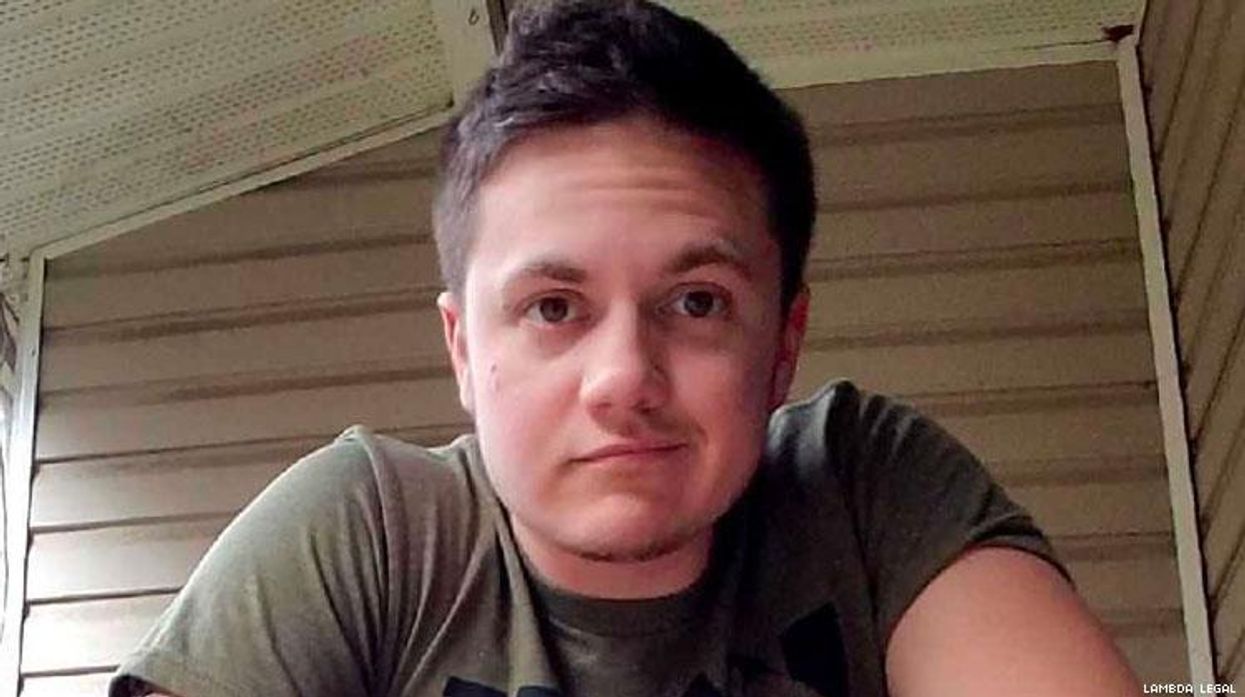Transgender
Trans Military Recruit Vows to Fight On

While the Supreme Court has let the trans military ban go into effect, Conner Callahan and his fellow challengers aren't giving up.
January 24 2019 5:44 AM EST
trudestress
By continuing to use our site, you agree to our Privacy Policy and Terms of Use.

While the Supreme Court has let the trans military ban go into effect, Conner Callahan and his fellow challengers aren't giving up.
Although the Supreme Court has allowed enforcement of Donald Trump's ban on military service by transgender people while cases against the ban make their way through the courts, those fighting for the freedom to serve aren't backing down.
"I plan to continue to fight," Conner Callahan, one of the plaintiffs in the Karnoski v. Trump suit, handled by Lambda Legal and OutServe-SLDN, tells The Advocate via email. "This new order is a step backwards, but it does not mean the case is closed."
Callahan, a trans man who is in the process of enlisting in the military, adds that the decision is nonetheless discouraging. "I have been working with Air Force Reserve recruiters for more than a year now," he says. "Frustratingly, I haven't been able to make it far in the process of enlistment. I have been required to submit massive amounts of paperwork and medical documentation, and each time I submit everything they ask for, I'm asked for new, additional documents. An application is only good for so long, and my time keeps running out, forcing me to start over and resubmit documents and applications again."
Callahan is one of nine individual plaintiffs in Karnoski v. Trump, which remains pending in U.S. District Court in Washington State. There are also three organizational plaintiffs, the Human Rights Campaign, Gender Justice League, and the American Military Partner Association. It is one of four suits challenging the ban.
A college public safety officer from Asheville, N.C., Callahan, now 29, has aspired to a military career since his early teens. He comes from a family with a history of military service. But he has seen his ambitions frustrated.
"The order from the court will slow the process down even more, essentially putting me in limbo," he says. "My recruiter doesn't know if we'll be able to move forward with the process at all. I'm stuck waiting and putting my entire life on hold."
In addition to putting the lives of aspiring military members on hold, allowing the ban to go into effect means the armed forces will begin discharging an estimated 13,700 service members, simply for being transgender. The ban is not only bad for trans Americans but bad for the military, Callahan says.
"Banning transgender people from the military weakens our nation in many ways, but there are two that I think stand out," he says. "First, banning trans people from military service weakens the military itself. The ban prevents perfectly fit and able people like me from serving their country. Military jobs are difficult and necessary, and those willing and capable of doing them should be allowed to. The military went through similar issues when it was desegregated and when gay personnel were allowed to openly serve. It has been found, overwhelmingly and consistently, that our military is at its best when we allow good people to serve, regardless of minority status.
"Secondly, I've known a number of trans people in my life and I am one myself, and I can tell you, we are just regular people and much more boring than we're made out to be. Transgender people have always existed and have been serving in America's military since the beginning. The current administration's repeated attacks on transgender people are misguided and not in line with American values."
Charlie Kirk DID say stoning gay people was the 'perfect law' — and these other heinous quotes